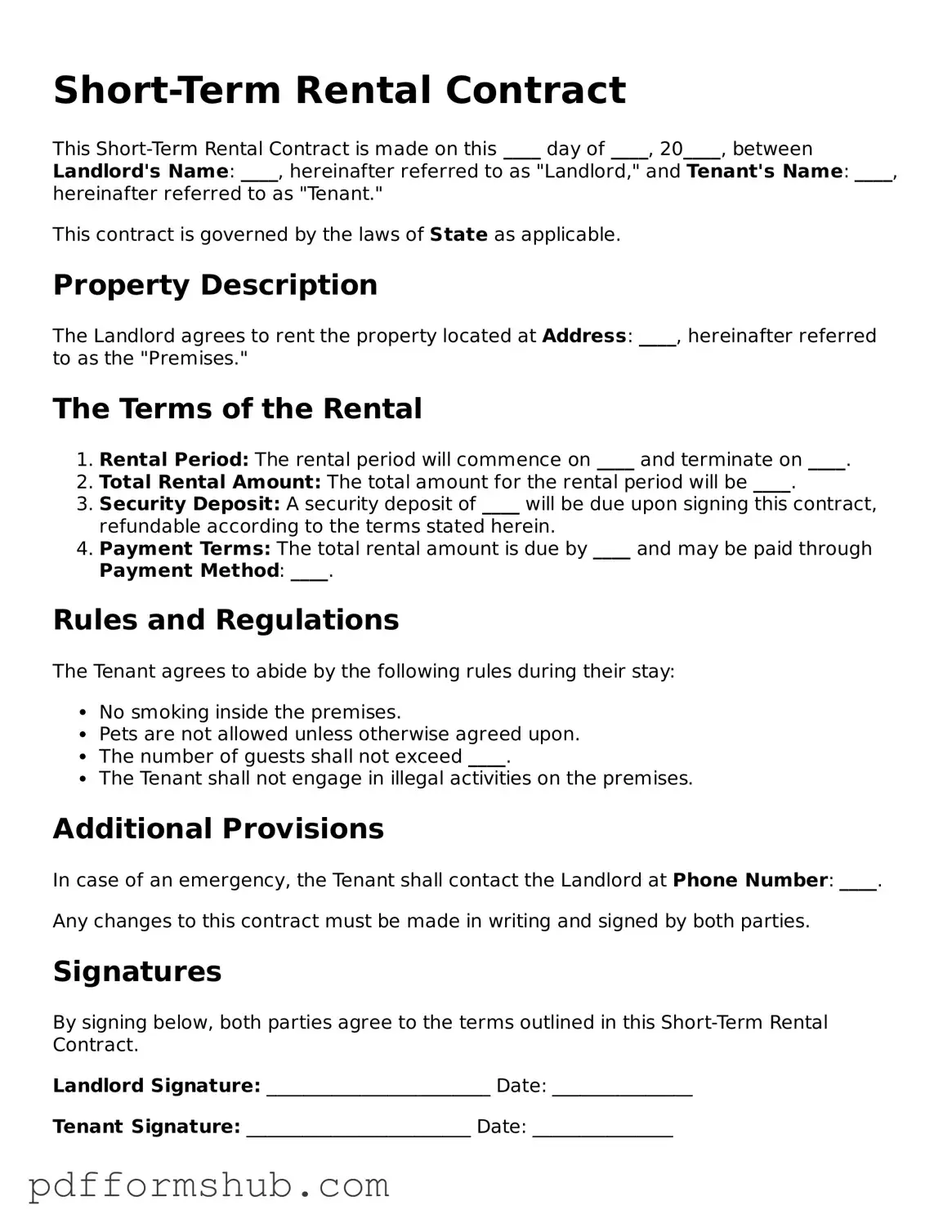Valid Short-Term Rental Contract Form
The Short-Term Rental Contract is a legal document that outlines the terms and conditions for renting a property for a brief period, typically less than a month. This contract protects both the property owner and the renter by clearly defining expectations regarding payment, property use, and responsibilities. Understanding this form is essential for a smooth rental experience, so be sure to fill it out by clicking the button below.
Customize Form

Valid Short-Term Rental Contract Form
Customize Form

Customize Form
or
Free PDF Form
Short deadline? Complete this form now
Complete Short-Term Rental Contract online without printing hassles.